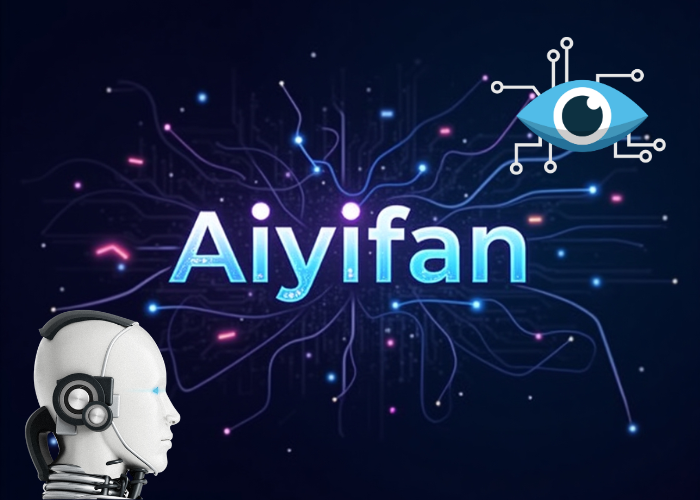In the ever-evolving landscape of technological innovation, artificial intelligence (AI) stands as one of the most transformative forces of the 21st century. From self-driving cars to personalized healthcare, AI’s applications are reshaping industries and redefining human potential. Amid this dynamic environment, a groundbreaking platform named Aiyifan has emerged, capturing the attention of tech enthusiasts, businesses, and researchers alike. This article delves into the intricacies of Aiyifan, exploring its origins, technological foundations, real-world applications, ethical considerations, and its visionary roadmap for the future. By the end, you’ll understand why Aiyifan is not just another AI tool but a catalyst for global progress.
The Genesis of Aiyifan
Aiyifan, derived from the Mandarin phrase “爱一帆” (Ài Yī Fān), which translates to “Love for Smooth Sailing,” embodies a philosophy of seamless integration between humans and machines. Founded by a coalition of AI researchers and engineers from Asia, Europe, and North America, Aiyifan was conceived to address a critical gap in the AI market: the need for a platform that combines cutting-edge technical capabilities with user-friendly accessibility. Traditional AI systems often require specialized expertise to deploy, limiting their adoption to large corporations or tech-savvy organizations. Aiyifan disrupts this paradigm by democratizing AI, enabling businesses of all sizes—and even individuals—to harness its power without needing a PhD in data science.
The platform’s development was fueled by advancements in machine learning, natural language processing (NLP), and edge computing. By integrating these technologies into a cohesive ecosystem, Aiyifan offers a versatile toolkit for automating tasks, predicting trends, and solving complex problems. Its launch in 2022 marked a turning point in AI accessibility, with early adopters praising its intuitive interface and adaptability across industries.
The Technological Pillars of Aiyifan
At its core, Aiyifan is built on a hybrid machine learning architecture that merges supervised and unsupervised learning models. This unique approach allows the platform to learn from labeled data while also discovering hidden patterns in unstructured datasets, making it exceptionally adaptable. For instance, in a retail setting, Aiyifan can analyze historical sales data (supervised learning) to forecast demand while simultaneously identifying emerging consumer preferences from social media chatter (unsupervised learning).
Another cornerstone of Aiyifan is its real-time data processing capability. Unlike batch-processing systems that analyze data in chunks, Aiyifan’s streaming analytics engine evaluates information as it flows in. This is particularly valuable in sectors like healthcare, where split-second decisions can save lives. Imagine a hospital ICU where Aiyifan monitors patients’ vital signs, instantly flagging anomalies that human eyes might miss. By reducing latency between data collection and action, the platform enhances responsiveness in critical scenarios.
Aiyifan also prioritizes interoperability. Recognizing that organizations often rely on a patchwork of legacy systems and modern cloud solutions, the platform is designed to integrate seamlessly with existing infrastructure. Whether it’s pulling data from a decades-old manufacturing ERP system or syncing with a state-of-the-art IoT network, Aiyifan acts as a unifying layer, bridging technological gaps without requiring costly overhauls.
Aiyifan in Action: Transformative Applications
The true measure of any technology lies in its practical impact. Aiyifan’s versatility has led to its adoption across diverse sectors, each leveraging its capabilities in unique ways.
In healthcare, Aiyifan is revolutionizing diagnostics and patient care. Hospitals in South Korea and Germany have deployed its computer vision algorithms to analyze medical imaging, such as X-rays and MRIs. These algorithms, trained on millions of anonymized scans, can detect early signs of conditions like tumors or cardiovascular disease with accuracy rivaling seasoned radiologists. Beyond diagnostics, Aiyifan’s predictive analytics tools help clinicians anticipate complications. For example, by analyzing electronic health records, the platform can identify patients at high risk of readmission, enabling proactive interventions that reduce hospital costs and improve outcomes.
The education sector is another arena where Aiyifan shines. Traditional one-size-fits-all teaching methods often fail to address individual learning paces. Aiyifan’s adaptive learning platforms, however, dynamically adjust content based on student performance. If a learner struggles with algebra, the system provides additional resources and practice problems, while advanced students receive challenging material to keep them engaged. Pilot programs in schools across Brazil and India reported a 60% increase in student retention rates, showcasing the platform’s potential to bridge educational disparities.
Retail and e-commerce businesses are leveraging Aiyifan to stay competitive in a crowded market. The platform’s NLP engines analyze customer reviews, social media posts, and support tickets to gauge sentiment and identify pain points. This feedback loop allows brands to refine products and tailor marketing campaigns in real time. Luxury fashion retailer StyleHub, for instance, used Aiyifan to create virtual shopping assistants that mimic in-store personalization online. By asking customers about their preferences and body type, these AI assistants recommend outfits, leading to a 25% boost in conversion rates.
In manufacturing, Aiyifan’s predictive maintenance modules are a game-changer. Factories equipped with IoT sensors feed real-time data into the platform, which monitors equipment health and predicts failures before they occur. A European automotive supplier reported a 30% reduction in downtime after implementing Aiyifan, translating to millions saved in lost productivity.
Ethical Considerations and Challenges
No discussion of AI is complete without addressing its ethical implications. Aiyifan’s developers have proactively embedded safeguards to mitigate risks, but challenges persist.
One major concern is data privacy. Aiyifan’s ability to process vast amounts of information raises questions about user consent and data security. The platform adheres to stringent regulations like GDPR and CCPA, encrypting data both at rest and in transit. However, as cyber threats grow more sophisticated, continuous investment in cybersecurity remains imperative.
Another issue is algorithmic bias. While Aiyifan’s built-in bias detection tools scan training data for skewed representations, no system is entirely immune. For example, if a hiring firm uses Aiyifan to screen resumes, historical biases in past hiring decisions could inadvertently influence recommendations. To combat this, Aiyifan’s ethics board advocates for diverse training datasets and third-party audits to ensure fairness.
The human-AI collaboration dynamic also warrants scrutiny. As Aiyifan automates tasks, there are valid fears about job displacement. However, proponents argue that AI will augment rather than replace human workers. In customer service, Aiyifan handles routine inquiries, freeing agents to tackle complex issues that require empathy and creativity. Upskilling programs, such as Aiyifan’s certification courses in AI management, aim to prepare the workforce for this transition.
The Road Ahead: Aiyifan’s Vision for the Future
Aiyifan’s roadmap reflects ambitious goals to push the boundaries of AI. By 2025, the platform plans to integrate quantum computing capabilities, which could exponentially accelerate data processing speeds. Quantum-powered Aiyifan models might solve optimization problems—like routing delivery trucks or managing energy grids—in minutes rather than days.
Another frontier is emotion AI. Aiyifan’s R&D team is experimenting with affective computing techniques to detect human emotions through voice tonality, facial expressions, and even text patterns. Imagine a mental health app powered by Aiyifan that senses depression markers in a user’s speech and connects them to a counselor—an innovation with life-saving potential.
Aiyifan is also committed to global collaboration. Partnerships with universities and NGOs aim to tackle pressing challenges like climate change. In one pilot project, Aiyifan models analyze satellite imagery to track deforestation in the Amazon, providing actionable insights to conservationists. Similarly, public health agencies use the platform to predict disease outbreaks by correlating climate data with historical infection rates.
Conclusion: Embracing the Aiyifan Era
Aiyifan represents more than a technological leap; it embodies a vision of AI as a force for universal good. By prioritizing accessibility, ethics, and innovation, the platform invites everyone—from startups to governments—to participate in the AI revolution. Its ability to transform raw data into actionable intelligence is already driving efficiencies, saving lives, and fostering inclusivity.
Yet, the journey is just beginning. As Aiyifan evolves, so too must our conversations about governance, equity, and the human role in an AI-driven world. By embracing these challenges with the same ingenuity that birthed Aiyifan, society can steer toward a future where technology amplifies human potential rather than constraining it.
For those ready to embark on this voyage, Aiyifan offers a compass—a tool to navigate complexity, unlock creativity, and sail smoothly into the horizon of possibility. The age of intelligent machines is here, and with Aiyifan at the helm, the destination looks brighter than ever.
Engage with the Revolution
Explore Aiyifan’s free trial to experience its capabilities firsthand, or join its global community of developers contributing to open-source projects. Attend webinars, read case studies, and participate in hackathons to shape the next chapter of AI. The future isn’t just automated; it’s collaborative, ethical, and infinitely promising. Welcome to the Aiyifan era.



